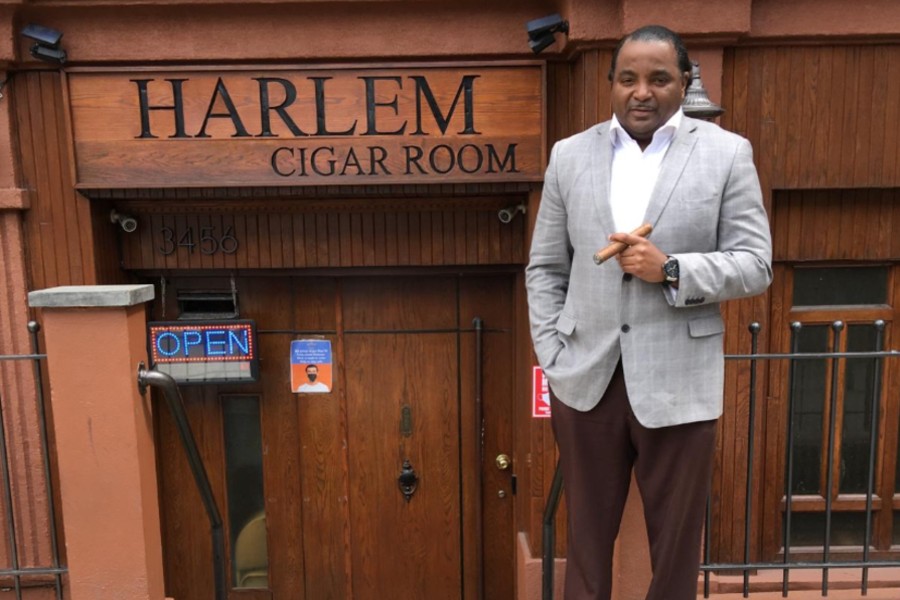
Department of Consumer and Worker Protection (DCWP) Commissioner Vilda Vera Mayuga today shared 10 resolutions to help you manage your finances in the new year.
DCWP urges all New Yorkers to take the time to set financial goals, budget, make plans to reduce debt, and get free financial counseling at a NYC Financial Empowerment Center this coming year.
“For this New Year, I urge all parents to join me in committing to talk to our children about our finances more often,” said DCWP Commissioner Vilda Vera Mayuga. “I know that opening up to our children about money can be difficult, but it’s key to helping them avoid the financial mistakes that we made in our lives. Make 2025 the year you and your family get on track for financial success and take advantage of our FREE and professional financial counseling services at one of our NYC Financial Empowerment Centers.”
DCWP Financial Resolutions for 2025:
- Get free financial counseling. No matter where you are on your financial journey, getting a start on bettering your finances is key to economic prosperity. You and your family can get free, one-on-one financial counseling by phone or in-person at a NYC Financial Empowerment Center where you can learn how to reduce debt, get help negotiating with your creditors, understand your credit report, create a spending plan, establish or improve your credit score, find a safe and affordable bank account, and start saving for emergencies and the future. In 2024, DCWP’s financial counseling services, including NYC Financial Empowerment Centers, helped more than 11,000 New Yorkers reduce their debt by $10.8 million and increase their savings by $1.5 million. Visit nyc.gov/TalkMoney or call 311 and say “financial counseling” to schedule an appointment or for more information.
- File your taxes for free and claim your refund, including important credits. NYC Free Tax Prep can help you understand your eligibility for tax credits and make sure you get the refund you deserve. Avoid spending your hard-earned money on a paid preparer – once the IRS announces the start of tax season, those who earned $93,000 or less and file as a family, or $65,000 or less and file as an individual or couple without dependents in 2024 can work with an IRS-certified VITA/TCE volunteer preparer to complete an accurate tax return for free in-person or online. Last year, NYC Free Tax Prep expanded to provide specialized services for self-employed filers, like freelancers, gig workers, and small business owners. For more information about these tax filing options and refund-boosting tax credits, including locations and requirements, call 311 and ask for tax preparation assistance or visit nyc.gov/TaxPrep.
- Take charge of your student loans. Starting on October 1, 2024, most student loan borrowers were expected to make loan payments regularly again or be considered “delinquent” on their debt. The potential financial impacts of delinquency include negative credit reporting and wage garnishment. Not sure how to start? NYC Financial Empowerment Centers can help you understand your rights and responsibilities and navigate student loan payment options. For more resources, visit nyc.gov/StudentLoans.
- Know your rights in the workplace. The newly expanded Workers’ Bill of Rights, a multilingual and comprehensive guide to rights in the workplace in New York City, summarizes the laws that protect workers and job applicants in New York City, regardless of immigration status. The Workers’ Bill of Rights includes information on rights enforced by DCWP, like Paid Safe and Sick Leave Law, the Fair Workweek Law, the Freelance Isn’t Free Act, the Temporary Schedule Change Law, and the city’s Delivery Worker Laws, as well as rights enforced by other state and federal agencies, like minimum wage and the right to organize.
- Know what you’re getting into if you use ‘buy now, pay later’ agreements. While these services may help you purchase more and spread-out payments, the amount of money you end up paying could be more than the total cost of the goods, especially if you miss a payment or pay late. If you choose to use these services, make sure you understand all the terms – for example, the number of weeks you will have to make repayments, interest rates, and fees. Visit DCWP’s Buy Now, Pay Later Tips for more information.
- Check your credit report and build your credit history. Lenders use your credit score and information on your credit report to make decisions on loans or credit cards and the interest rate you pay. To avoid surprises and correct any potential mistakes on your credit, you should check your credit reports regularly. You are entitled to a free credit report every 12 months at annualcreditreport.com. If you find any errors, file a dispute with the credit bureaus. Using a credit card wisely will help you build your credit history and increase your credit score. Try using your credit card only for purchases you can pay off in full or at least pay the minimum monthly. A higher credit score means you will have access to better credit products and lower interest rates on any new loans you take out.
- Open a safe bank account. If you don’t have a bank account, start the new year by opening one that’s safe, affordable, and right for your needs. Doing so will reduce fees spent at a check casher. All New Yorkers can open a NYC SafeStart Account—the City’s FREE bank account with an ATM card, no overdraft fees, and no monthly fees if you have a minimum balance of only $25 or in some cases even less. Visit nyc.gov/SafeStart or call 311 and ask about the NYC SafeStart Account. Some banks and credit unions also accept IDNYC as the primary form of identification.
- Develop and stick to a spending plan to better understand your finances. A spending plan can help you reorganize your expenses, reduce your costs, and save for tomorrow. Start by tracking your current daily spending so you can organize your expenses into needs and wants. Once you understand your current spending, find the “lost money” in your budget by calling your service providers to ask about discounts that can help you find a few extra dollars. Then, don’t forget to pay yourself! Remember, saving $25 or $50 a month can help you build savings over time. You can make this easier by setting up automatic transfers for each time you get paid.
- Plan for retirement. If you have the opportunity to save for your retirement through a plan sponsored by your employer, try to budget to contribute a set amount each month. Every little bit helps in the long run, even if you cannot reach the maximum contribution limit each year. You also can open your own accounts, such as a traditional Individual Retirement Account (IRA) or Roth IRA.
- Protect yourself from identity theft. Create unique passwords for each online account and make sure they have capital and lowercase letters, numbers and symbols. Never share your password with others and change it several times a year. Also, avoid giving personal information online, by email or on social media sites. If you are the victim of ID theft, report it to your local police precinct and file a complaint with the Federal Trade Commission (FTC) at ftc.gov/idtheft or call 1-877-ID-THEFT (1-877-438-4338). Place a fraud alert on your credit report with one of the three credit reporting agencies: Equifax, Experian, TransUnion.
The NYC Department of Consumer and Worker Protection (DCWP)—formerly the Department of Consumer Affairs (DCA)—protects and enhances the daily economic lives of New Yorkers to create thriving communities. DCWP licenses more than 45,000 businesses in more than 40 industries and enforces key consumer protection, licensing, and workplace laws that apply to countless more. By supporting businesses through equitable enforcement and access to resources and, by helping to resolve complaints, DCWP protects the marketplace from predatory practices and strives to create a culture of compliance. Through its community outreach and the work of its offices of Financial Empowerment and Labor Policy & Standards, DCWP empowers consumers and working families by providing the tools and resources they need to be educated consumers and to achieve financial health and work-life balance. DCWP also conducts research and advocates for public policy that furthers its work to support New York City’s communities. For more information about DCWP and its work, call 311 or visit DCWP at nyc.gov/dcwp or on its social media sites, Twitter, Facebook, Instagram, and YouTube.
Latest Posts
- The Wider Applications Of AI Image Generators in Everyday Lives
- Sponsored Love: 5 Hacks To Find Affordable Car Insurance In New Orleans
- Key Features To Look For When Choosing A Workspace For Your Business
- Manhattan BP Levine Announces Bold Plan For Universal Childcare From Harlem To Hollis
- AI In Entertainment: Creating Music, Movies, And Art
Become a Harlem Insider!
By submitting this form, you are consenting to receive marketing emails from: . You can revoke your consent to receive emails at any time by using the SafeUnsubscribe® link, found at the bottom of every email. Emails are serviced by Constant Contact








